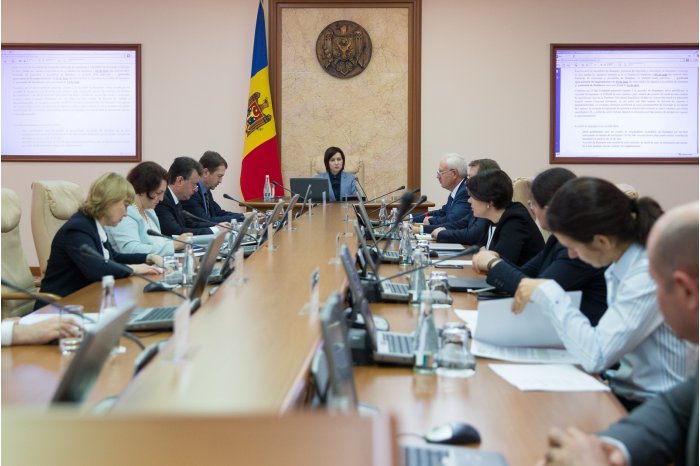Government approves signing of three grants for Moldova on behalf of European Commission
13:38 | 23.07.2019 Category: Official
Chisinau, 23 July /MOLDPRES/ - Prime Minister Maia Sandu, before her visit to Brussels, today convened a cabinet meeting, in order to approve the starting of negotiations and the signing of three financing agreements between Moldova and the European Commission, the government’s communication and protocol department has reported.
The first financing agreement, worth 8.49 million euros, refers to strengthening the supremacy of law and anticorruption mechanisms in Moldova. This includes a string of measures to reform the justice, develop the programme of zero tolerance to corruption among citizens, consolidate the mechanisms of criminal investigation and prosecution, as well as to optimize the national systems of recovery of assets and declaring the wealth.
The agreement is to be implemented by the German Agency for International Cooperation.
The second agreement provides for the inclusive economic support of target regions, especially Cahul and Ungheni, selected jointly with the development partners from EU. Thus, under the agreement, Moldova will benefit from a grant worth 23.5 million euros. The means will be used to enhance the citizens’ capacity to get better living conditions and create jobs in these regions. At the same time, decision-makers will back entrepreneurship initiatives among young people and the creation of small- and medium-sized enterprises. The actions will be implemented with the support of the United Nations Development Programme (UNDP) in Moldova.
The third agreement due to be signed with the European Commission has the general goal to implement the Association Agreement, especially on the social dimension. The accord will offer measures of support to promote gender equality in Moldova and fighting the domestic violence.
The overall cost of the agreement is 10.7 million euros, non-refundable, and among the beneficiaries, there are the Education, Culture and Research Ministry, Health, Labour and Social Protection Ministry, local public authorities from the Ungheni and Cahul districts, as well as civil society’s organizations.

